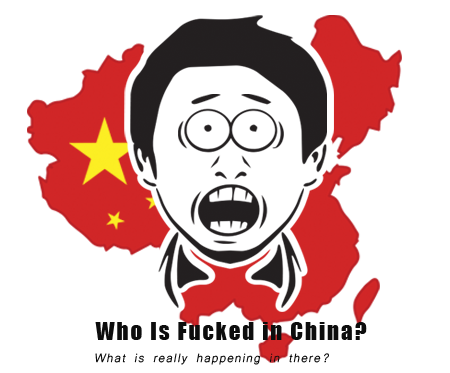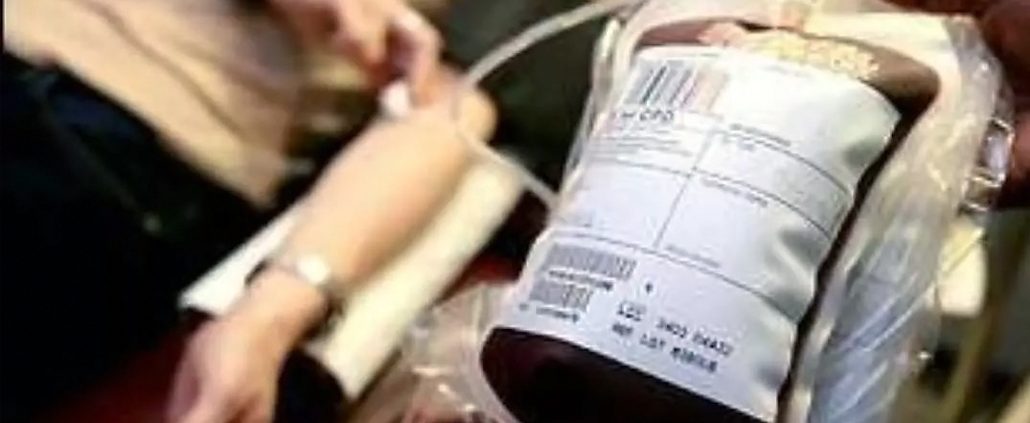The Bloody Dilemma – Blood Shortage in Beijing
The Patients in Despair
Pu Baozhen was a patient with aplastic anemia. On February 6th, 2018, her bone marrow transplant surgery was stopped after 10 minutes. Nobody has found the unexpected worse part is coming – Blood Shortage in Beijing.
That morning, the hospital received a document. It stated: From February 10th, 2018, the “Replacement Blood Donor Policy” would be abolished officially in Beijing. This put many patients who were in need of urgent blood transfusion in a bloodless situation.
Pu Baozhen was one of them. After her surgery had been paused, the platelet amount of her system dropped to 9×10^9/L (normal range is 100-300×10^9/L). After taking the hemostatic medicine, her nosebleed was barely stopped. However, she could still be killed by cerebral hemorrhage when she coughed violently.
Pu Baozhen was sent back to her rented apartment. The hospital couldn’t give her a clear answer of when she could continue the bone marrow transplant surgery because of “the lack of blood supplies”. Her daughter knew, if the blood came too late, Pu Baozhen would face certain death.
Xiaochen was also a patient of aplastic anemia, who was facing the same situation. As one of the younger generation, 24 years old Xiaochen liked to post things about his daily life on Weibo (a Chinese microblog website).
“There’s no blood anywhere… I’m sorry, everyone, I’m exhausted and I feel I want to give up on life,” He wrote on his Weibo after looking for every possible online for blood supply.
A blogger (alias Flower and Fire Alice, Chinese characters 花火爱丽丝) posted an article after the Replacement Blood Donor Policy had been abolished. “Do you believe it? On Chinese New Year eve, lots of patients in Beijing were dying because there was no blood available for transfusion…” She started the article with rants. “My mother almost died a few days ago.” Alice’s (Flower and Fire Alice) mother was a patient with leukemia. She learned about the news of abolishing Replacement Blood Donor Policy on the subway. “I was shocked. Then I almost lost my mind. My mother just finished the chemotherapy. She needed platelets. Otherwise, she would die in minutes!”
“My family had already spent a lot of money on my mother’s treatment. Finally, she was getting better, but this notification took away all our hope! It might even kill my mother. Who can feel my desperation?” Alice wrote it in her blog entry.
What’s The Replacement Blood Donor Policy?
The Replacement Blood Donor Policy of Beijing, just as its name implies, was a policy that allowed the family members and friends of a patient who needed blood transfer, to donate blood to the blood bank and exchange the same amount of blood for the patient. They would have to fill out an application form in the hospital first; then they could go to any blood station in Beijing to donate. After the donation, they would get a certificate stating the amount of blood they have donated. They could then use the certificate to apply for blood use for the patient.
This policy had caused a lot of uproar on the internet since day one it had been enacted. Precisely speaking, this policy was a temporary solution for the blood shortage in Beijing after the scandal of the Chinese Red Cross after the year 2011. The fast growth of population in Beijing was also a reason for the blood shortage. According to relevant laws, blood donation should be unpaid and done under the donator’s own will. The donated blood will be stored in the blood banks. A direct donation only happened when the patient was the donor’s family member.
Construction worker Zhang Daqiang was injured during work. Before his surgery, the hospital informed his family members that the hospital blood bank was experiencing a blood shortage. Zhang Daqiang needed to participate in the replacement blood donation. Zhang Daqiang’s sister and brother, and one of his co-workers ending up donated blood for his blood use.
Replacement blood donation wasn’t only enacted in Beijing, China. It was a rather common solution to blood supply shortage in developing countries such as Ghana. Although paid blood donation attracted more donors, the quality of blood can’t be guaranteed. In this case, replacement blood donor became a hybrid of unpaid and paid blood donation. In this case, a friend or family member of the recipient donates blood to replace the stored blood used in a transfusion, ensuring a consistent supply.
Some opponents thought the policy was forced blood donation in disguised form. Especially the patients who had planned surgeries, their family members were informed that they needed to donate blood for blood. What if the patient’s family members were not qualified for blood donation, you ask? Well, it indirectly brought back a long vanished “job”, Blood Head (people who deal blood in China were called blood head).
Crushing “Blood Head”
Almost 30 years ago, thousands of people who contracted HIV virus sold their blood to blood heads who worked in the unsanitary, often state-run clinics. The ghost of this high-profile scandal still haunts Chinese people. Even the government promised that the blood donors themselves or their family members would have priority of blood use, blood donors still remained low. According to the National Health and Family Planning Commission, only 1.05% of the population in China donated blood in 2016. The World Health Organization (WHO) says that about 3% of the population needs to be blood donors in order to maintain an adequate blood supply.
Under this circumstance, the replacement blood donation became an effective method to solve the problems caused by blood shortage. Although it was against the principles of unpaid blood donation, it guaranteed that the patients would have enough blood supplies and in the meantime helped keep the stock of local blood bank.
However, light is always followed by a shadow. Replacement blood donation brought back the blood dealers, which were called “blood head” in China. However, instead of small clinics, now they were mainly active on the internet or roamed around the blood donate station.
According to the policy, not only family members, the “friends” of the patients can also be the blood donor. That was the key for some people to abuse the policy, which eventually led to the official abolishment of the entire policy.
Usually, if the patients needed the blood transfusion but none of their family members were qualified for blood donation, looking for the “blood head” was a way to save lives. The blood head will look for donators. Of course, the patients needed to pay them “nutrition fee” for return. The blood head will deduct a percentage from the payment.
It was hard to turn down the profits. Even some doctors and nurses became part of the illegal blood trading. They will introduce “blood heads” to family members of patients who were in need of urgent blood use.
“Since doctors and nurses are medical professionals, patients usually won’t doubt what the doctors and nurses told them. It made them try to sell more blood to the patients to make more profits.” A report from local television channel said so.
The blood dealing not only abused the policy but also lowered the quality of blood supplies. The donors controlled by blood heads usually donated too frequently. Their blood can’t be used on those who needed it.
According to the report of the local media in Nanning, Guangxi Province, 68.2% out of the unqualified blood were from replacement blood donors.
Like milking a cow, the blood heads will ask the blood donors to take different medication and supplemental pills. In this way, the donors can donate more frequent. However, it will lower their blood quality.
Selling blood was always a good way to make side money in less developed areas. It attracted lots of people who were in need of money. A lot of them had a history of drug use or even blood infectious diseases. Usually, the experienced blood heads would arrange them to donate blood when the hospitals were seriously short of blood supplies. In this way, they could skip the necessary screenings before donating blood.
In fact, Beijing wasn’t even the first city to ban replacement blood donation. As early as the year 2012, Wuhan (capital of Hubei Province) has already banned the replacement blood donation to control illegal blood trading. The year 2017, Sichuan Province and Guangxi Province both abolished the same policy.
The purpose of banning replacement blood donation was mainly about controlling the illegal blood trading and crushing the blood heads. However, the result wasn’t ideal. Alice mentioned in her blog entry, “Banning replacement blood donation was for crushing the blood heads, who would expect that it made the blood even more expensive?” According to her narrative, the platelets were almost 20 times the former price.
“I wasn’t writing this article to criticize the replacement blood donation ban. I know that illegal blood trading must be controlled. All we ask for is, give us some time to prepare for the consequence before publishing such a notification. The patients’ lives matter.” Alice ended her blog entry with an appeal for blood donations.
How to solve the blood shortage issue?
The hospitals, doctors, and patients were now facing this problem. What and how should they do to deal with the blood shortage?
The relevant government department promised to “make individual blood use plan and arrangement”. For the more complex platelets donation, the local blood bank needed to improve the publicity and collecting service.
Yu Chengpu, the professor of Zhongshan University, has done plenty of research on blood donation in China. He was also following the replacement blood donation ban in different cities over years. “The blood stations mostly focus on whole blood donation. However, they didn’t do too much about the publicity of platelets donation.”
Platelets are critical for patients suffered from aplastic anemia and leukemia. Pu Baozhen, Xiaochen and Alice’s mother were all impacted by the replacement blood donation ban because of the shortage of platelets.
“Many blood donors don’t even know the difference between whole blood donation and platelets donation.” Yu Chengpu said in his report.
Netizens’ comments over the sudden abolishment of Replacement Blood Donation Policy
“Replacement blood donation was banned.” “Patients are dying because of blood shortage.” Stories were trending on Chinese social media. Netizens also left their comments on the event.
On Weibo, Ma Boyong, author of several award-winning books, questioned why the Health Department didn’t consider the consequences the abolishment of this policy would bring to the patients. Weibo user “Ostrich wanna-be pig” was more straightforward, “The policymakers can enjoy the best medical resources of this country. They don’t need to consider the possible bad consequences.” Some Weibo users even called this policy abolishment “death planning”, for the overwhelmed population of Beijing urban area.
Li Shanjian, an individual commentator said, “Chinese government is a bad policy maker. They tend to make policies without supports of detailed researches and planning for possible results. And they requested local agents to execute the policy as soon as possible, without any suggests or method to make the transition smooth.”
Law&Life Magazine published an article titled “Red Gold Trading”, focusing on the illegal blood trade in China. The article suggested local blood stations learn from the blood center in Shenzhen, Guangdong Province. For 9 years in a row, all the blood used in the hospital of Shenzhen city was from unpaid blood donation.
The article ended with a comment on the event. “Replacement Blood Donor Policy was a lazy policy. The government should focus on encouraging citizens to donate blood and publicizing the benefits of blood donation, instead of passing the blood shortage issue over to the family members of patients.”




Leave a Reply
Want to join the discussion?Feel free to contribute!